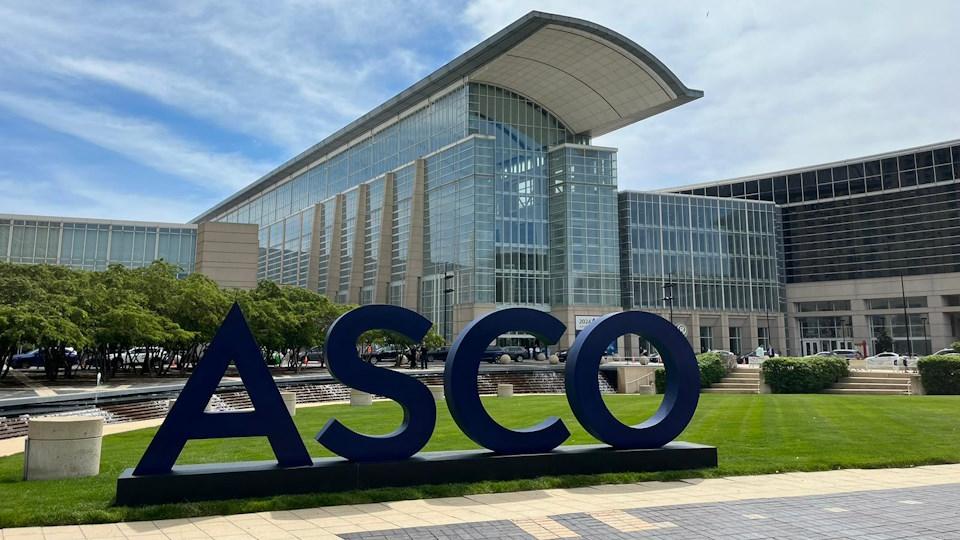ASCO: DREAMM-8 data puts GSK’s Blenrep back on track

GSK is increasingly confident that its anti-BCMA drug Blenrep could be returned to the US market, after revealing data from the DREAMM-8 trial of the drug in multiple myeloma at ASCO.
Adding Blenrep (belantamab mafodotin) to pomalidomide and dexamethasone (BPd) for relapsed or refractory multiple myeloma was more effective at slowing disease progression or death compared to the current standard-of-care, Takeda’s Velcade (bortezomib) with pomalidomide and dexamethasone (PVd), after at least one prior line of therapy.
GSK teased the result earlier this year, and at ASCO, delegates got a full look at the data, headlined by progress-free survival (PFS) of 71% for the Blenrep group at the end of a year’s follow-up, compared to 51% with PVd, which was a 48% improvement.
Moreover, after a median follow-up of just under 22 months, median PFS had not been reached for the Blenrep arm, versus 12.7 months for the comparator group. There was also a non-significant 23% trend towards improved overall survival with the antibody-drug conjugate (ADC). The results have also been published in the New England Journal of Medicine.
Nearly all participants in both treatment groups experienced side effects, with eye-related reactions like changes in the cornea and blurred vision significantly more common with GSK’s drug, affecting 89% of those in the BPd group and 30% of those treated with PVd.
Lead study author Suzanne Trudel of the Princess Margaret Cancer Centre in Toronto noted that those eye effects could generally be managed by adjusting or holding the dose of Blenrep, with most patients able to continue taking the drug regimen.
The DREAMM-8 data follows positive results from another phase 3 trial, DREAMM-7, which showed Blenrep extended PFS by 59% than Genmab and Johnson & Johnson’s anti-CD37 therapy Darzalex (daratumumab) – both given on top of Velcade plus dexamethasone – when used as second-line therapy for multiple myeloma. In that study, GSK’s drug also showed a 43% trend towards improved OS.
Blenrep won accelerated FDA approval in 2020 as a fourth-line or later treatment for multiple myeloma, but was withdrawn from sale following the failure of the DREAMM-3 study in 2020 to show an improvement in PFS or OS when used as a third-line or later treatment.
That trial was intended to confirm the accelerated approval and help move the drug into earlier-line use. Now, GSK can point to the newer studies as evidence of the drug’s efficacy and it hopes to refile for FDA approval later this year, subject to discussions with the regulator.
If approved, it will offer an off-the-shelf, outpatient treatment alternative to J&J’s BCMA-targeting CAR-T Carvykti (ciltacabtagene autoleucel) – which requires a convoluted manufacturing process and hospitalisation – as a second-line or later therapy for multiple myeloma.
In the third-line or later setting, Bristol-Myers Squibb’s rival CAR-T Abecma (idecabtagene vicleucel) is also a rival, along with a pair of BCMAxCD3 bispecifics – J&J’s Tecvayli (teclistamab) and Pfizer’s Elrexfio (elranatamab).
However, all the competitors are in clinical trials to see if they can move up the treatment pathway, so GSK’s window of opportunity with Blenrep may not be very long.
The drug is still on sale in some ex-US markets, but brought in just $45 million last year, a far cry from GSK’s projections of $3 billion to $4 billion when it was first launched. Now, the new data suggests GSK could start to get it at least partially back on track, with some analysts predicting $1.5 billion or more in sales if approved on the strength of the DREAMM-7 and DREAMM-8 data.
Check out our interview with Trudel at ASCO 2024 below.













